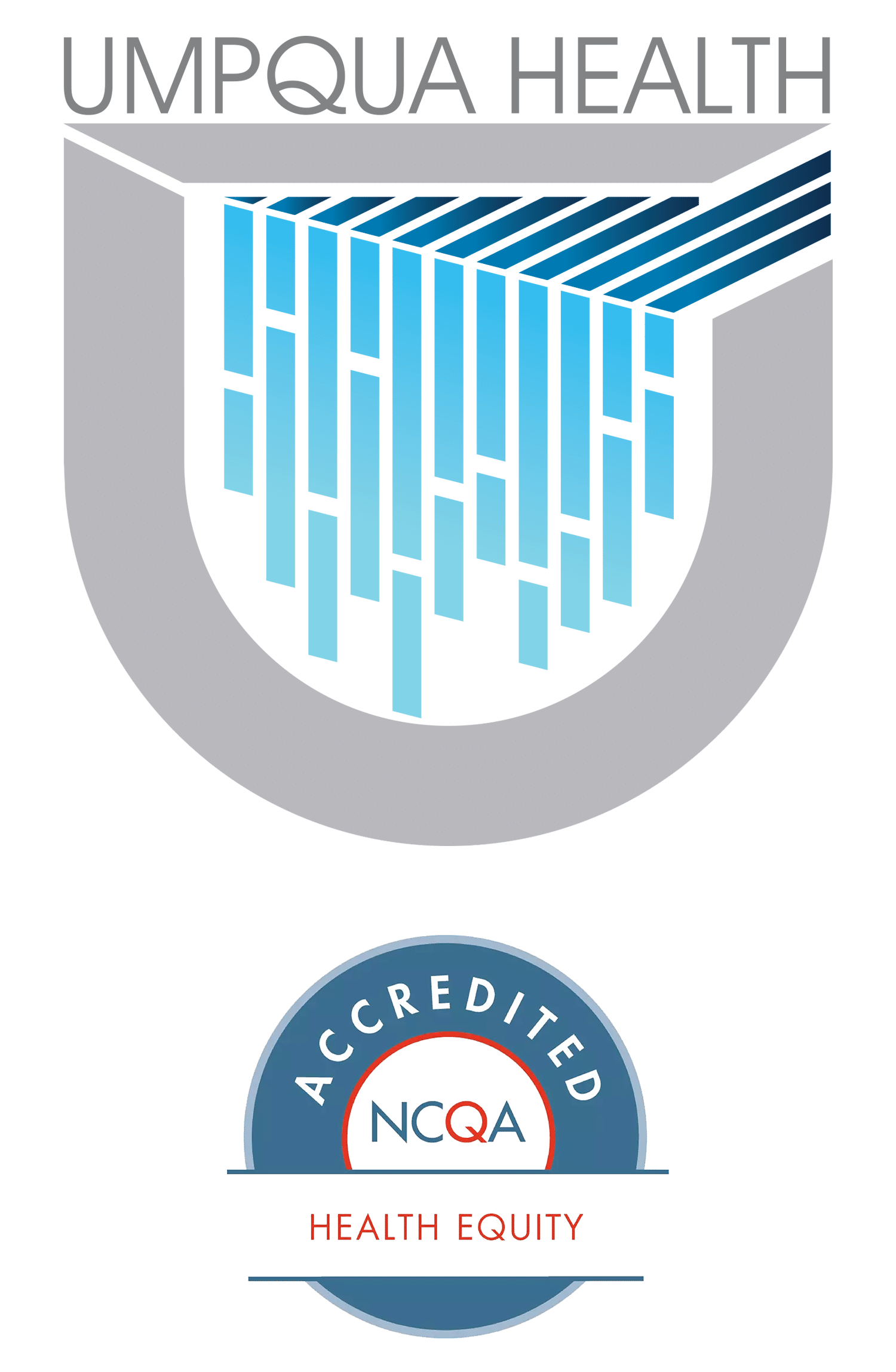Member Newsletter – Spring 2021

Welcome
Thank you for your constant support! Umpqua Health Alliance (UHA) works hard to keep our members up to date on what’s going on in Douglas County as well as within our company. If you have any questions or have ideas for our next newsletter, please contact us by calling 541-229-4842 or email us at info@umpquahealth.com. To sign up for our Member Newsletter, please press Ctrl and click this link: https://signup.e2ma.net/signup/1907516/1716984/.
You can get this letter in another language, large print,
or another way that is best for you. Call 541-229-4842 (TTY 711)
Umpqua Health News
- Customer Care is closed for in person help, but we are open by phone, email, and fax!
- Phone: (541) 229-4842 or Toll Free at (866) 672-1551, TTY (541) 440-6304
- Fax: (541) 677-6038
- Email: UHAMemberServices@UmpquaHealth.com
- Website: UmpquaHealth.com
- Facebook: https://www.facebook.com/UmpquaHealth/
- Face-to-Face New Member Orientation
- Umpqua Health Alliance is excited to offer a new face to face member orientation meeting with Zoom with Customer Care representatives! This Zoom meeting allows you to see us while talking to us about questions you may have regarding your benefit coverage. If you are interested in scheduling a time to meet with us, please follow this link: https://www.umpquahealth.com/ohp/benefits/ and click the blue “Face to Face Orientation” button located on the right of the page.
- Member Bills
- When you’re on OHP (or UHA), you should not receive a bill for a covered service. If you do receive a bill for a covered service, please let UHA know right away! We will work with you and the providers to help resolve the bill. You can send a copy of your bill by mail or email to:
Attn: UHA Customer Care
500 SE Cass Ave Suite 101
Roseburg, OR 97470
-
-
- Email: UHCustomerCare@umpquahealth.com If you send us an email, please do not put your name in the subject line of the email. This is to protect you and your personal health information (PHI). Please use “Member Bill” in the subject line.
-
- UHA’s Health Risk Assessment (HRA) is now available on our website!
- If you have any specific health issues you would like us to know about, or would like the help of care coordination, please fill out our HRA. These answers help us understand your current health issues or concerns. Once we have a completed survey, a UHA Care Coordinator may reach out to you with information or resources available to you based on your answers.
- To fill out an HRA screening, please follow this link:
Healthy Habits
Self-care is so important to your wellbeing. These are trying times, and doing small tasks can help keep your mind and your body healthy. Try these helpful tips.
- Spring Cleaning
- It’s springtime so let’s spring clean! Declutter your home to declutter your mind. Coming home to a clean house provides such a calming effect. Get rid of that box of clothes you don’t wear that is collecting dust in the back of your closet. Take time to clean out those cobwebs in the corner so you don’t see them anymore now see since the sun is shining more often.
- Get Moving
- Physical activity helps your overall health, fitness, and quality of life. It can help reduce your risk of heart disease, depression, anxiety, type 2 diabetes, and dementia. The CDC recommends that adults should try walking at least 30 minutes a day, 5 days a week.
- There are 2 types of physical activities that you can do:
- Cardio or Aerobic
- This includes biking, dancing, yard work, and walking
- This gets your heart beating faster to help burn calories
- Muscle Strengthening
- Muscle strengthening would be doing crunches, squats, weightlifting, etc.
- To get the most out of this, work all your body’s major muscle groups. This means your legs, arms, abs, hips, back, and chest.
- For more helpful tips from the CDC, please visit their website at: https://www.cdc.gov/chronicdisease/resources/infographic/physical-activity.htm
- Cardio or Aerobic
- There are 2 types of physical activities that you can do:
- Physical activity helps your overall health, fitness, and quality of life. It can help reduce your risk of heart disease, depression, anxiety, type 2 diabetes, and dementia. The CDC recommends that adults should try walking at least 30 minutes a day, 5 days a week.
- Eat a Healthy Diet
- Why is this so important? Eating nutritional food is essential in keeping you healthy in other aspects of your life. Poor nutrition is the leading cause of obesity, heart disease, and some cancers. According to the CDC, low levels of vitamins and minerals can result in mental impairment and central nervous system defects. People who have healthy eating patterns live longer and are at lower risk for serious health problems like type 2 diabetes and obesity.
- Get Your Rest
- Sleep deprived Americans tend to eat unhealthier foods late at night because they get a sudden urge for munchy foods.
- The average school aged child, ages 6-12, is recommended to get 9-12 hours of sleep in a 24-hour period.
- It is recommended that teens, ages 13-18, get 8-10 hours per 24-hour period.
- Adults ages 18 and older is recommended to get between 7-9 hours of sleep per 24-hour period.
- This healthy habit information was found on the Center for Disease Control and Prevention (CDC) website: https://www.cdc.gov/
- Sleep deprived Americans tend to eat unhealthier foods late at night because they get a sudden urge for munchy foods.
- Quit smoking
- We understand that this is easier said than done. That is why UHA offers many different options to help you stop smoking. We cover things like nicotine patches, nicotine gum, and other smoking cessations. We also offer a free membership to Quit For Life.
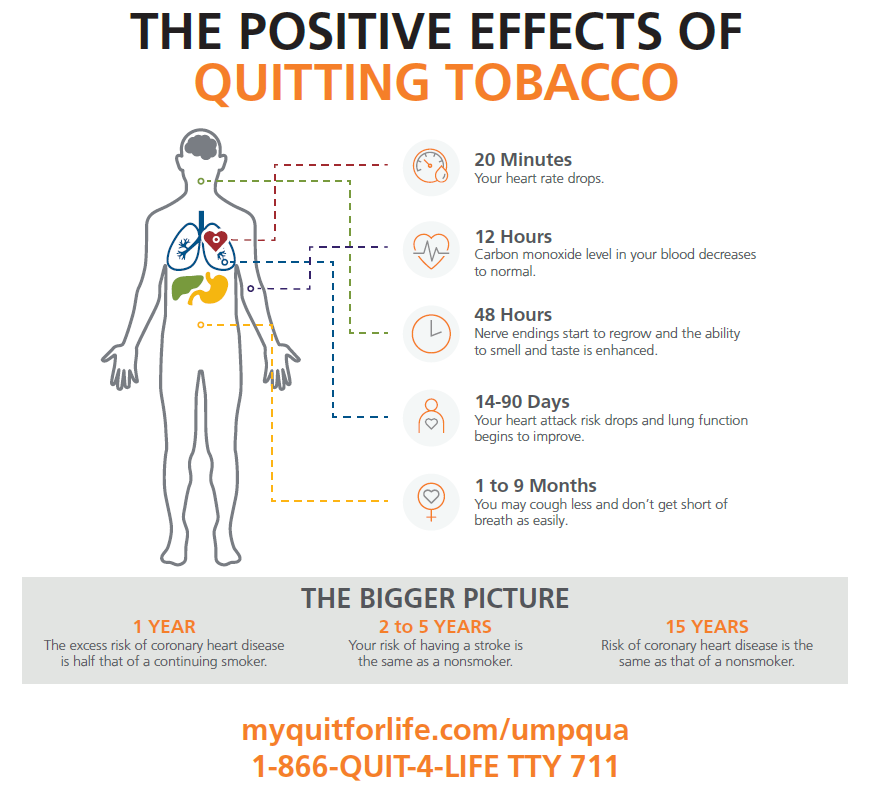
Service Spotlight
 Kanani Dilcher, MD – Aviva Health Family (formerly known as Umpqua Community Health Center) of Sutherlin has recently welcomed Dr. Kanani Dilcher into their practice. Originally from Hawaii, Dr. Dilcher moved to Washington to complete her undergraduate studies at the University of Puget Sound. She earned her medical degree from the University of Hawaii in 2009. She is a Family Medicine Physician who accepts patients of all ages. She’s is currently open to new patients at the Sutherlin location. She is also practicing in Aviva’s Drain office on Tuesdays and Fridays.
Kanani Dilcher, MD – Aviva Health Family (formerly known as Umpqua Community Health Center) of Sutherlin has recently welcomed Dr. Kanani Dilcher into their practice. Originally from Hawaii, Dr. Dilcher moved to Washington to complete her undergraduate studies at the University of Puget Sound. She earned her medical degree from the University of Hawaii in 2009. She is a Family Medicine Physician who accepts patients of all ages. She’s is currently open to new patients at the Sutherlin location. She is also practicing in Aviva’s Drain office on Tuesdays and Fridays.
- Dilcher is a core family member of the Roseburg Family Medicine Residency Program. This program trains physicians to provide caring, compassionate, and competent primary care in a rural area.
- If you would like to schedule a new patient appointment with Dr. Dilcher, please give their office a call at:
- Sutherlin: 541-459-3788
- Drain: 541-804-1717

- Umpqua Health is investing in the community by offering Iris’ Healthcare’s Empower Advance Care Planning (ACP) platform to all Douglas County residents over the age of 18. This benefits the entire Douglas County community at large, not just Umpqua Health Alliance members, and is intended to improve care delivery and overall member and community health and well-being.
- Empower is a secure, self-guided online platform that simplifies the advance care planning process. Empower provides supporting information to help users make their future healthcare decisions, auto-generate state-specific advance directives and to sign, store and share their documentation with family members and care teams in the event of a medical emergency should they not be able to speak for themselves.
- What is Advance Care Planning?
- Advance care planning (ACP) is defined as a process that supports individuals in understanding and sharing their values, goals and preferences for future medical care. These care decisions are then formally documented in an Advance Directive, a forward-thinking legal document that empowers individuals, their loved ones and their care teams to make the right healthcare decisions moving forward. ACP facilitates physicians providing patients with the right care, at the right time, in the appropriate setting.
- For more information on Empower, visit our members services tab on the UHA website at https://www.umpquahealth.com/advanced-care-planning-empower/

Community Resources and Events
- NeighborWorks Umpqua
- Are you needing assistance in managing your finances? Are you wanting to purchase your first home but need a little help coming up with that down payment? NeighborWorks Umpqua is here to help! They offer help with this and more. They can work with you to help manage your income by creating a budget so you can start saving money. You can sign up for their Dream$avers (Dream Savers) program where they can help you with a down payment on a house. If you’re eligible, you can receive up to $10,000 as a low-interest loan. They even offer a DreamBuilders program that provides 0% down payment and flexible financing to those who qualify. This program has you participate in building your own house to cut the cost of labor, saving you money as well!
- For more information on these programs and other things they offer, please visit their website at: https://www.nwumpqua.org/
- DreamBuilders program:
- 2021 Dream$avers program:
- Help with managing and budgeting your income:
- COVID-19 vaccine distribution centers
- Are you eligible to receive your COVID-19 shot? Here are the steps to take to receive your vaccine:
- Contact your primary care physician (PCP)
- If your PCP isn’t providing the shots, most of the major pharmacies are offering them. For phone numbers for all of our contracted pharmacies, please go to the “Find a Pharmacy” section of our website:
- To see if you’re eligible to receive your vaccine, or to stay up to date with the vaccine, please visit OHA’s COVID-19 website:
- Federally Qualified Health Centers (FQHC) can vaccinate anyone they serve. Here is a list of all contracted FQHC’s:
- Aviva Health Center Roseburg – 541-672-9596
- SouthRiver Community Health Center – 541-492-4550
- Are you eligible to receive your COVID-19 shot? Here are the steps to take to receive your vaccine:
Did You Know?
- April is National Autism Acceptance Month
- What is autism?
- Autism is a developmental disability that affects roughly 1 in every 54 children, per CDC’s study in
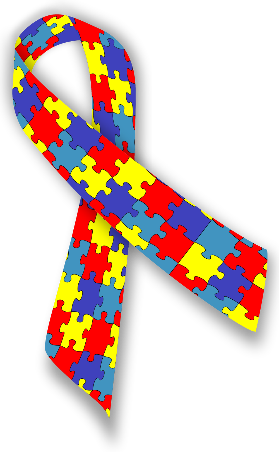 2020. Autism can affect a person’s social skills, their ability to communicate and self-regulation. Typically diagnosed around the age of 4, but reliable diagnoses can be made as early as 2 years old. Autism affects all ethnic and socioeconomic (someone’s social class determined by a combination of education, income, and occupation) groups.
2020. Autism can affect a person’s social skills, their ability to communicate and self-regulation. Typically diagnosed around the age of 4, but reliable diagnoses can be made as early as 2 years old. Autism affects all ethnic and socioeconomic (someone’s social class determined by a combination of education, income, and occupation) groups.
- Autism is a developmental disability that affects roughly 1 in every 54 children, per CDC’s study in
- What causes autism?
- Contrary to popular believe, vaccines DO NOT cause autism. Rather, research indicates that autism is typically caused by genetics.
- How is it treated?
- There is no cure for autism. However, there are ways to minimize the impact the diagnosis has on their life and the life of the families.
- Early intervention can improve a child’s learning, communication, and social skills. Applied Behavior Analysis (ABA) therapies can help develop behavioral interventions. This means they help work with the child and family to increase their language and communication skills, improve focus, and social skills.
- There is no cure for autism. However, there are ways to minimize the impact the diagnosis has on their life and the life of the families.
- What is autism?
What treatment options do we have locally?
- Umpqua Health Alliance is contracted with Connect the Dots. They provide speech, occupational, and physical therapy services.
- Phone number: 541-900-1418
- They are located at:
2198 NE Stephens St Suite 101
Roseburg, OR 97470
- Early Intervention & Early Childhood Education offers initial assessments and early intervention services
- Phone number: 541-440-4794
- They are located at:
1871 NE Stephens St
Roseburg, OR 97470
- A little further away, in Klamath Falls, is Behavior Improvement Group (BIG) ABA by OIT. They offer Parent Training services and will hopefully soon be offering full ABA services here in Douglas County.
- Phone number: 541-885-1675
- OHSU has a Child Development and Rehabilitation Center. They offer full developmental evaluations and provide access to developmental pediatric teams.
- Phone number: 541-346-3575
- For more information about autism, please visit https://www.autism-society.org/. There are online support groups available through Autism Society of Oregon at https://autismsocietyoregon.org/.
- You can also get help and support through UHA by contacting Customer Care and requesting a Care Coordinator.
- May is National Stroke Awareness Month
- According to the American Stroke Association (ASA), strokes are the number two (2) cause of death worldwide. A stroke occurs when your brain is unable to get the blood supply it needs to work properly. This causes your brain tissue to not get the oxygen and nutrients it needs and results in brain cells dying. If treated quickly, it reduces brain damage and other complications caused by strokes.
- Symptoms of a stroke are easily recognizable if you know what to look for. ASA devised an easy way to remember the signs of a stroke by using F.A.S.T.

- June is Men’s Health Month
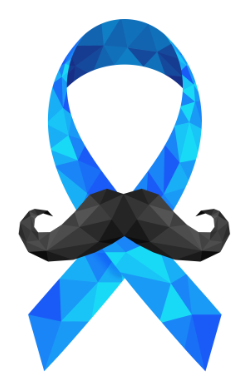
- Along with cardiovascular health, mental health, diabetes, and nutrition habits, prostate health effects over 1 million men every year. This has a large impact on the quality of their lives. It can come in the form of an inflammation of the prostate (prostatitis), non-cancerous enlargement of the prostate (BPH), and prostate cancer.
- Prostatitis refers to an acute or chronic bacterial infection or an inflamed prostate. The cause of prostatitis is unknown. Antibiotic can help relieve bacterial infections.
- BPH is not life threatening but can affect your quality of life. The enlargement of the prostate causes your urethra to narrow which puts pressure on your bladder. This can cause blockage in your urinary tract.
- What is Prostate Cancer? Prostate cancer is the most common malignancy diagnosed in men. It’s an abnormal growth of cells. If left untreated, they form tumors which may spread to other parts of the body. Early detection is a key factor in beating this disease.
- If you have questions or concerns about your prostate health, please talk to your doctor. They may be able to prescribe a simple blood test called PSA (Prostate Specific Antigen). This PSA enzyme is only found in men’s blood. This test can show elevated levels which can detect prostate cancer.
- Along with cardiovascular health, mental health, diabetes, and nutrition habits, prostate health effects over 1 million men every year. This has a large impact on the quality of their lives. It can come in the form of an inflammation of the prostate (prostatitis), non-cancerous enlargement of the prostate (BPH), and prostate cancer.
More information about men’s health can be found here: https://www.menshealthresourcecenter.com/
Kids Corner!
Welcome to our newest section of the Member Newsletter! Here we will provide fun and healthy ideas for children. If you have any ideas or have anything you want to ask us to put in here, please let us know! Call 541-229-4842 or email us at info@umpquahealth.com.
- How to support your child with the transition back to the classroom
- Having your child at home doing their schoolwork via Zoom has been something to get used to. So, now that the schools are opening back up and the children are starting to go back to an in-class environment, how are some ways you can help them with the transition? Here are some tools provided by the Oregon Health Authority:
- Re-establish a morning and afternoon routine. Let your child help you make the decisions on the details of the routine. Having choices helps make handling the uncertainty easier.
- Make sure that they are back to their normal school-time sleep schedule. Having a good night’s sleep will help their problem-solving skills throughout the day.
- Ask your child how they are feeling about this transition. Let them know you’re there to support them. Your child knowing you understand and recognize that this may be a stressful time for them will help give them the reassurance they need to be ready.
- Encourage them to think about the positive side of going back to class. Like getting to see your friends in person, and not just on a screen.
- If they express concerns about bringing COVID-19 home, remind them that everyone is doing their best to reduce the chances of infection. You can remind them that wearing masks, using hand sanitizer and washing your hands frequently, and staying 6 feet apart as much as possible will help reduce the spread.
- If you would like more tips on preparing your children for going back to in-class learning, please take a look at OHA’s blog located here:
- Having your child at home doing their schoolwork via Zoom has been something to get used to. So, now that the schools are opening back up and the children are starting to go back to an in-class environment, how are some ways you can help them with the transition? Here are some tools provided by the Oregon Health Authority:
- DIY Sensory Toys
- Sensory building tools help children of all ages. Whether they’re a baby learning the difference between soft and hard, to a child with autism learning to self-sooth with a fidget lap pad. Sensory play stimulates your child’s senses and helps them develop. There are many benefits to including sensory play in your child’s everyday life. This includes improving coordination and fine motor skills.
- Calming Squish Bags are a great way for children to learn about colors, but also provide a calming effect on those with autism.
- Materials to make these include:

- Hair Gel
- Freezer Ziplock bags
- Little pom-poms
- Glitter and/or food dye
- Any other little toys that you think might be fun to put in
- Duct tape
- Directions are simple. Fill the Ziplock with the hair gel and toys until you get a good squishy “pillow”. Use the tape to seal all edges. This will help keep the bag from opening if your child presses too hard. Photo courtesy of http://lifeasmamabear.com/squishy-sensory-bags/.
- Materials to make these include:
- For more DIY sensory play ideas, please follow this link:
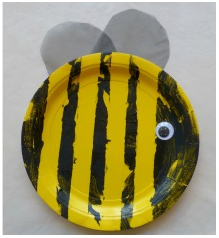 It’s springtime! That means all of the flowers are blooming, the bees are buzzing, and the sky is getting bluer! Why not get into the spirit of spring by creating your own Paper Plate Bugs and other critters!
It’s springtime! That means all of the flowers are blooming, the bees are buzzing, and the sky is getting bluer! Why not get into the spirit of spring by creating your own Paper Plate Bugs and other critters!
- All you need is some paper plates, colored paper, paint, and anything other coloring utensil you have. This blogger made butterflies, snails, bee’s, and ladybugs:
- This blogger created an amazing display of flowers from paper plates and other items:https://meaningfulmama.com/day-109-paper-plate-flower-garden.html



